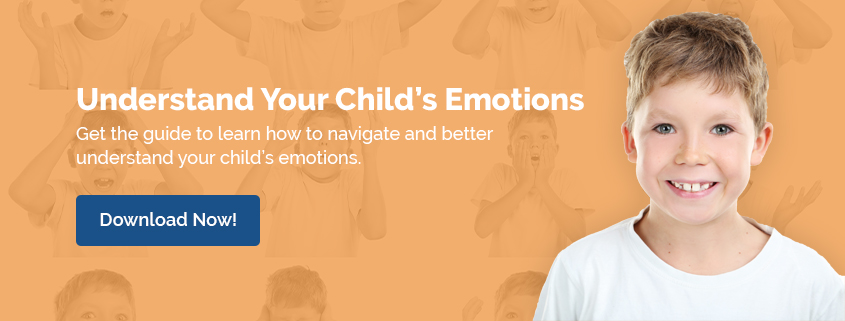Finding the Right Therapist: How to Choose a Child Mental Health Counselor
There are lots of reasons that children can benefit from talking to a counselor. Whether to treat a mental illness or to simply build up self-esteem, talking with a mental health professional is a simple step that can make a big difference. However, it’s also important to know how to choose a child mental health counselor, because not every professional is a good fit!
Understand Your Child’s Needs
Before you start looking for an adolescent mental health counselor, be sure you understand your child’s needs. Is your child getting bullied or having trouble making friends at school? Do they struggle with mental health problems like anxiety, depression, or ADHD? Can you tell something is wrong in your child’s life, but just aren’t able to pinpoint it? Children’s mental health can be hard to decipher.
Once you have a grasp on the problem at hand, focus on the goals you have for child therapy. Do you want someone to teach coping skills? Does your child simply need someone to listen to them and talk through problems? Knowing what you (and your child) want out of therapy is the best way to set their sessions up for success.
Ask for Referrals
A great start to finding a counselor or therapist for your child is to ask a child care expert. Talk with a pediatrician to determine what kind of therapy could be helpful and discover what mental health services are out there.
Health care professionals can give you advice about how to navigate the search process and offer referrals for potential therapists based on their own expertise. You may also want to consider talking to your child’s school counselor, who is likely familiar with local mental health resources and can answer any questions you might have.
Consider Experience and Education
Take some time to make sure that the person you’re seeing is qualified for your child’s needs. Child therapists should have extensive experience working with children and adolescents. In fact, many child therapists have advanced degrees in working specifically with pediatric patients.
Determine if they’re experienced in treating your child’s condition. Therapists often specialize in certain areas of expertise, so your therapist should have experience treating conditions that are similar to your child’s (such as autism spectrum disorder).
Know the Mental Health Treatment Needed
This is one of the most important aspects of choosing a therapist since it will determine how your child’s mental health issues are approached. If you know what specific type of mental health treatment your child needs, find a therapist who specializes in that type. It’s okay if you don’t know, though! Therapists can help determine the best treatment plan for your child.
Cognitive Behavioral Therapy (CBT)
Cognitive behavioral therapy (CBT) is based on the idea that thoughts, feelings, and actions are all connected. For example, if they feel angry because they’re having trouble studying for an exam, CBT would help them recognize the signs of distress so they can take steps to calm down before those feelings get out of control.
CBT is different from traditional talk therapy because it teaches skills like problem-solving, stress management, and relaxation techniques to better cope with everyday challenges. It also helps people identify and change negative thought patterns or behaviors that make them feel worse about themselves or other people.
Family Therapy
Family therapy can provide support for both parents and children in a safe, supportive environment. It’s especially helpful for families experiencing significant stressors such as divorce, illness, death, and other major life changes.
Family therapists are trained to work with all members of the family (including siblings) together in one session so that everyone benefits from talking about their feelings and concerns as a family unit.
Play Therapy
Play therapy is a form of counseling in which the therapist works with children to resolve their issues through the use of play. It is designed to help children express their feelings, thoughts, and emotions through their behavior. The therapist will help them understand the cause of their problems and develop new skills to handle them.
Play therapists are trained to understand the therapeutic value of play and its impact on children’s development. They are effective in helping children deal with anxiety, depression, and other mental health issues.
Psychotherapy
Psychotherapy, also known as “talk therapy,” is a form of treatment that helps people manage their thoughts, feelings, and behaviors. Psychotherapy is more intense than counseling and often involves talking about your feelings in order to understand them better. The goal of psychotherapy is not just to make you feel better, but to change the way you think about things.
Psychotherapy can also help children who have experienced trauma – whether it happened to them directly or was something they witnessed – and can teach coping skills to deal with those memories.
Choose the Type of Child Therapist
When it comes to choosing your child’s therapist, an important step is deciding what type of counselor or therapist you want them to see. There are many types of therapists, including psychiatrists, psychologists, and social workers. The type of therapy offered may depend on the therapist’s training, experience, and interests.
Counselor
Counselor is a broad term for a mental health provider. They have many functions, including patient evaluation, providing resources, and suggesting problem-solving options. They often specialize in specific issues, which could include substance abuse, relationships, and more.
Psychiatrist
A psychiatrist is different from a psychologist, although they are often confused with one another. While psychiatrists also treat mental illness with talk therapies, the most important difference is that psychiatrists can diagnose and manage treatment for complex and severe mental illnesses. Additionally, they can prescribe medication for their patients.
Psychologists, by comparison, provide therapy but can not prescribe medication. Psychiatrists attend medical school before specializing in mental health and have a very in-depth understanding of the link between mental and physical problems.
Psychologist
A psychologist is similar to a counselor or therapist but with different techniques and treatments. Becoming a psychologist often involves more education than a counselor, meaning that most psychologists have doctoral degrees. Psychologists are more likely than counselors to see patients with severe mental disorders.
Social Worker
Similar to a counselor, a social worker provides emotional guidance. Clinical social workers can go beyond counseling sessions and provide guidance on living in the community.
Social workers help with mental health care but also look at the broader spectrum and outside factors that can affect a child’s mental health. To be considered a clinical social worker, the professional must first earn a master’s degree in social work.
Therapist
Therapists are similar to counselors in that they work to improve a patient’s mental health and overall well-being. Unlike counselors, therapists have to be licensed by the state and require more education (typically obtaining doctoral degrees).
Find a Good Therapist That Your Child Trusts
It’s important to meet with a child’s mental health counselor a few times before deciding whether to continue the relationship. Observing your child after those meetings and asking him or her about their experience is essential.
Does the child feel comfortable and safe? Are they willing to share thoughts and feelings with this counselor? Does it seem like the counselor understands them and is someone your child looks forward to seeing at therapy sessions? If so, you’ve found a match! If not, then it’s time to find someone else.
Ready to Find Professional Help?
Finding the right mental health professional for your child is crucial to effective therapy – the most important thing is that the therapist is a good match for the child’s personality. Many professionals can be a good therapist, but if your child doesn’t feel comfortable with them, you won’t achieve the outcomes you’re hoping for
While it can be tempting to simply choose the first therapist you find who seems qualified on paper, keep in mind that your child needs someone they can open up to. Taking time to find a therapist who you and your child feel comfortable with is one of the best things you can do to ensure successful therapy sessions.
If you’ve been trying to determine how to choose a child mental health counselor, and feel like now’s the time to get some help, call Meridian HealthCare. We’ve been trusted in the community for decades and are happy to help you find the best possible option for your child!






